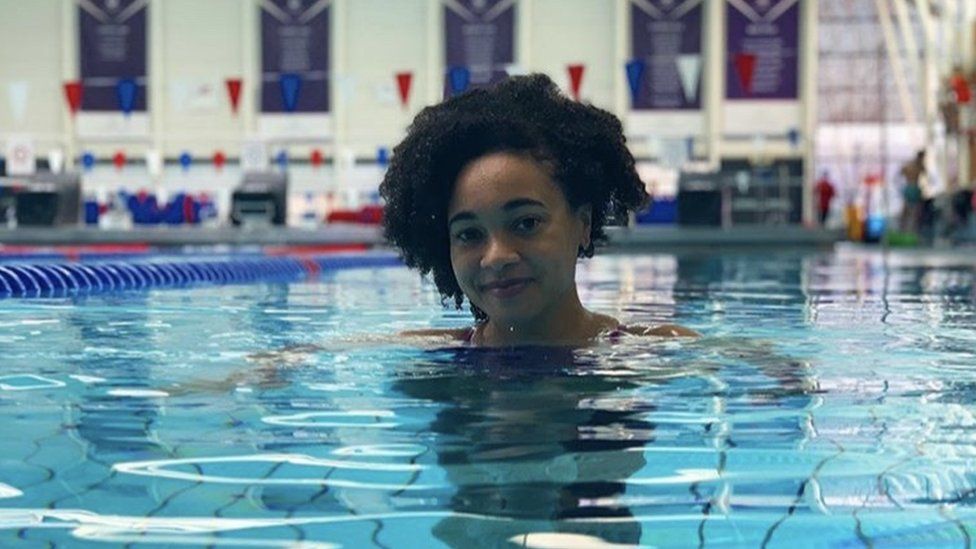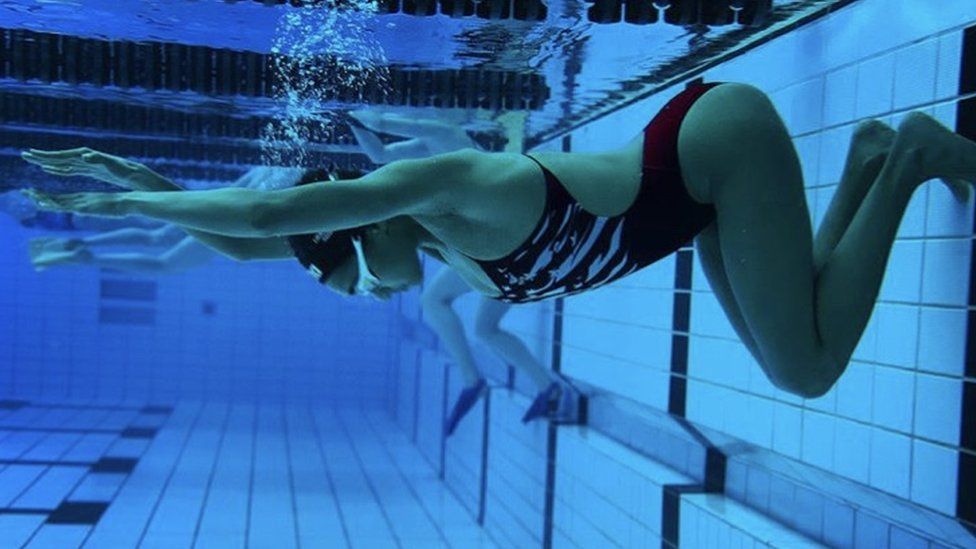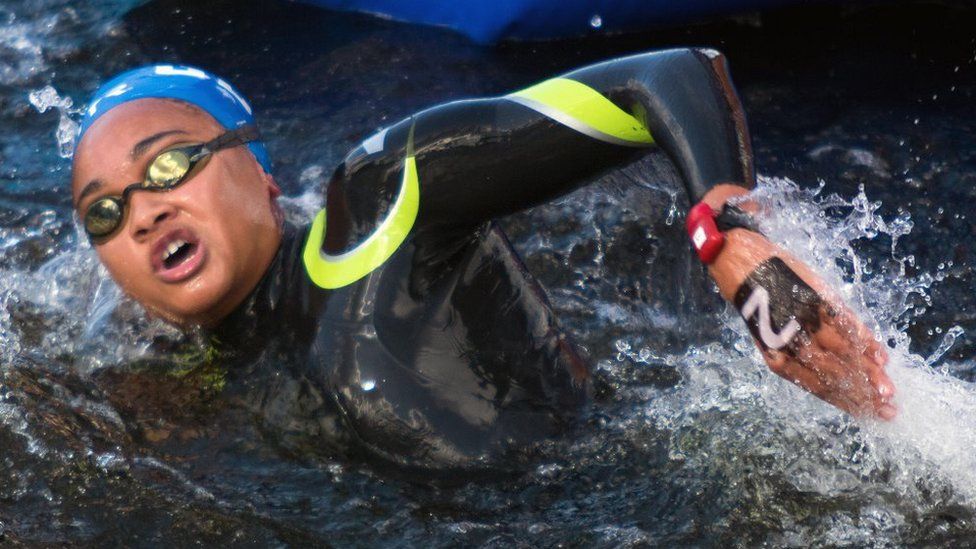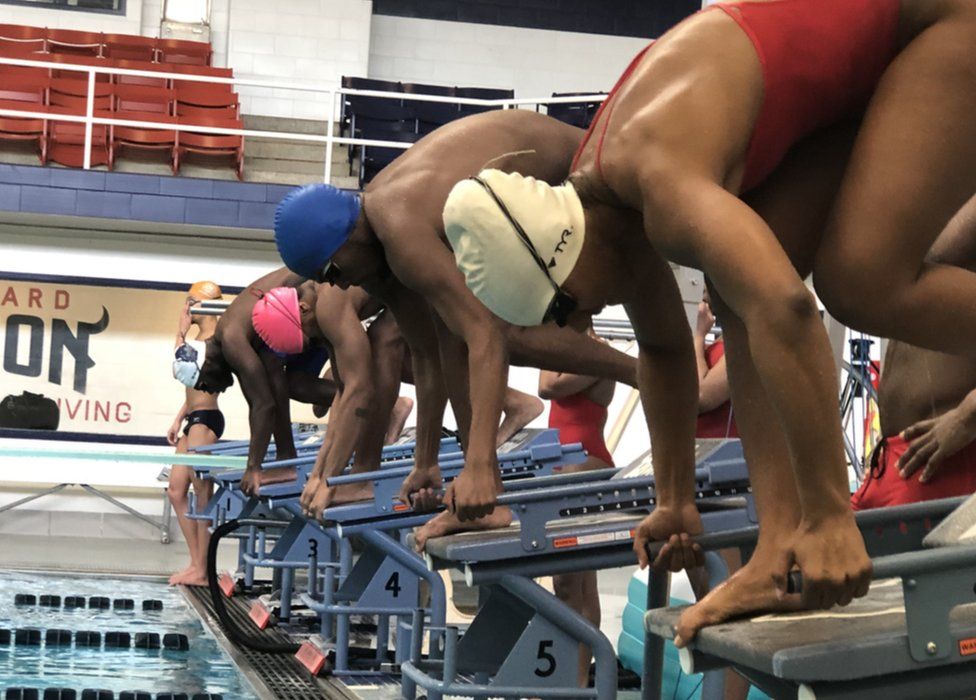SPORTS
Team GB’s only black swimmer: ‘I understand why girls would quit over their hair’
Published
5 years agoon
By
BRJ Media
By Seren Jones
 IMAGE COPYRIGHTINSTAGRAM/ALICEDEARINGX
IMAGE COPYRIGHTINSTAGRAM/ALICEDEARINGX“I vividly remember a black girl saying at training that the reason black girls don’t swim is because of their hair.
“I was about 12 or 13 at the time and had never thought of the idea of hair stopping you from swimming. Now that I am older I can fully understand why someone would quit over their hair.”
Alice Dearing, a 22-year-old student at Loughborough University, is one of Great Britain’s top female marathon swimmers.
She’s also currently the only black swimmer on Team GB and is only the second to represent them in the water.
“It sounds ludicrous but it can be really damaging to your self-image and confidence as chlorine wrecks hair. But it’s even harder for girls with thicker hair, which the majority of black girls have.”
 IMAGE COPYRIGHTINSTAGRAM/ALICEDEARINGX
IMAGE COPYRIGHTINSTAGRAM/ALICEDEARINGXAlice has represented Team GB at numerous international competitions including two World Championships. She’s English and Ghanaian and seeing someone like her in the sport at this standard is rare.
The BBC sent a Freedom of Information request to Swim England asking how many competitive swimmers who are registered with them identify as black or mixed race. The national governing body responded saying just 668 out of 73,000.
It comes as Swim England has told the BBC it’s seen a rise in the number of BAME people swimming recreationally over the past few years.
Swimming can actually be more damaging to afro hair than non-afro hair, because of a substance used in swimming pools called sodium hypochlorite, more commonly known as bleach.
“Afro hair is naturally drier than other hair because it has less cell layers, which means it doesn’t retain as much moisture,” says Shirley McDonald a consultant trichologist at The Institute of Trichologists in London.
“Sodium hypochlorite can cause excess dryness leading to damage if the hair is not washed and conditioned after swimming – and so afro hair is likely to suffer more quickly because of its structure.”
 IMAGE COPYRIGHTALAMY
IMAGE COPYRIGHTALAMYTeam GB’s swimming squad had one of its most successful international competitions at this summer’s World Championships in Gwangju, South Korea. The team finished seventh in the medal table with seven medals – three gold, one silver and three bronze.
Alice placed in the top 20 in the women’s open water 10k race.
“I like to think I represent black competitive swimmers in the UK who may often feel out of place – as I sometimes did during my early years,” she said.
Diversity in swimming has always been limited not just in the UK but on a global scale.
Hair isn’t the only factor in this. It’s an expensive sport that has historically meant racial segregation and discrimination in countries like South Africa and the United States.
BBC World Service spent some time with swimmers from Howard University at the Black History Month invitation in Washington DC for The Documentary Podcast, Black Girls Don’t Swim. It’s the only historically black university in America that has a men and women’s swim team.
 IMAGE COPYRIGHTNOELLE SINGLETON
IMAGE COPYRIGHTNOELLE SINGLETONChandler Carter is a member of the women’s team: “I know loads of girls who quit swimming because of their hair.”
“It can be really hard because in the summer you see your friends popping with fresh braids and long weaves and I just have to have my hair natural or get ‘bob braids’ because that’s all that fits under the swim cap.
“But you get used to it.”
Latroya Pina is also on the team and also competed at the world championships representing Cape Verde. Although she understands the difficulty of balancing hair and swimming she thinks it’s worth it.
“One of the best things about being at Howard is if I’m having a bad hair day and struggling to put my cap on I look at the girls and see them struggling too and we’re all struggling together.”
Of course there are some swimmers who have been highly successful regardless. In 2016, American Simone Manuel became the first black female swimmer to win an Olympic gold medal in Rio. In total she won two golds and two silvers at the games.
Ebony Rosemond is the founder of Black Kids Swim, a non-profit organisation offering guidance and information for black swimmers and their families in the US.
She’s also aware of the factors behind why the sport tends to see fewer black competitive swimmers, especially women.
“The two main reasons I hear as to why we don’t see as many black girls in the sport is inherited fear of the water and hair. Hair is extremely important to young black girls.”
“For a very long time, black women have been told that there’s something wrong with their hair, and even today we can see the impact of that message.”
“We lose a lot of girls around 10 years old because they want their hair to look a certain way.”
The importance of hair to black women is reflected in their spending on hair products. According to a report in the Huffington Post, in 2017 the UK black hair industry was worth an estimated £88 million with black women on average spending three times more than white women on hair care.
Even though there are only a small number of black and mixed race swimmers competing in the sport in the UK, Alice hopes she can make a difference.
“I’m not a high profile swimmer but I hope the little bits of coverage I get through the media help encourage other people of colour who wouldn’t normally take part in swimming to go get lessons, or join a club or even just splash around with friends.”
A Swim England spokesperson said: “Swim England is working to understand the challenges and barriers to swimming and other aquatic activity through the project Barriers to Swimming.”
It says the project aims to understand the barriers that communities have in making swimming and other aquatic activities a regular habit.
Recommended by BRJ Media
This article originally appeared in BBC.
© 2021 BBC
You may like
-
How would you like to enjoy the holiday with school kids at home, and how do you ensure the selection of furnitures of proper posture and ergonomic?
-


Recommendation: Here One Moment
-


Book View: The Rise of the Dragon
-


Recommendation: A Voyage Around the Queen
-


Precipice: A World On The Brink Of War. An Affair On The Edge Of Scandal
-


Ex-OpenAI researcher claims Sam Altman doesn’t support AI regulation










